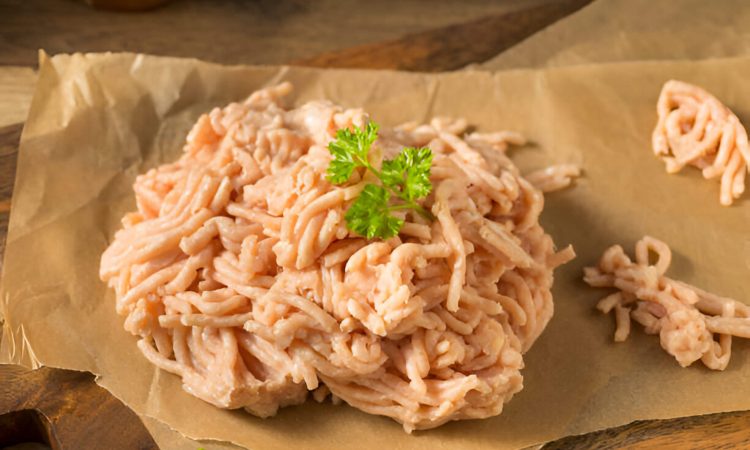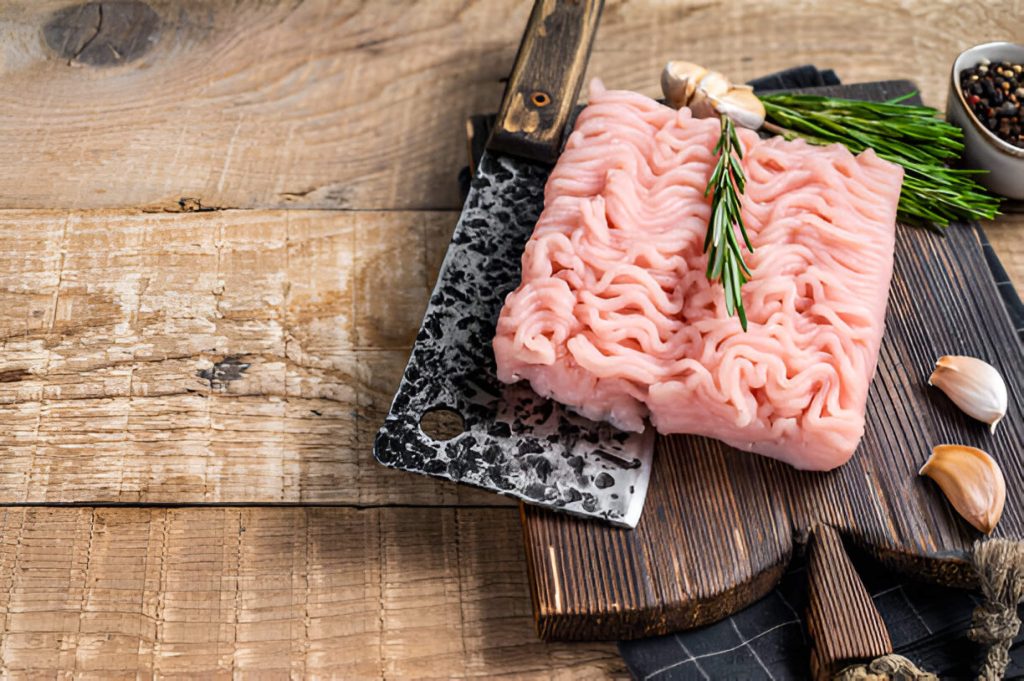
Ground turkey is a popular, lean protein alternative to traditional ground meats. It’s versatile, suitable for various dishes from breakfast to dinner. This guide explores ground turkey’s benefits and provides tips for cooking, flavoring, and safely handling this adaptable protein source.
Ground Turkey Nutritional Benefits and Varieties
Ground turkey is a versatile and nutritious alternative to traditional ground beef. This poultry option offers a range of health benefits and comes in different varieties to suit various dietary needs and culinary preferences.
When it comes to nutrition, ground turkey is generally lower in calories and fat compared to ground beef. Lean ground turkey, typically made from breast meat, is particularly low in fat and high in protein. It’s an excellent source of essential nutrients such as vitamin B6, niacin, and selenium. Dark meat ground turkey, while slightly higher in fat, provides more iron and zinc.
There are several types of ground turkey available in the market:
1. Lean ground turkey: Made from white meat, it contains less than 10% fat.
2. Regular ground turkey: A mix of dark and white meat, with about 15% fat content.
3. Dark meat ground turkey: Made from thigh and drumstick meat, it’s more flavorful but higher in fat.
4. Extra-lean ground turkey: The leanest option, with less than 5% fat.
Choosing the right type of ground turkey depends on your nutritional goals and the dish you’re preparing. Lean and extra-lean varieties work well in health-conscious recipes, while regular or dark meat options can add more flavor to dishes like burgers or meatballs.
Preparing Your Kitchen (Essential Tools and Ingredients)

To make the most of your ground turkey dishes, it’s essential to have the right tools and ingredients on hand. Start with a high-quality non-stick pan, which will prevent the lean meat from sticking and ensure even cooking. A sturdy wooden spoon or spatula is ideal for breaking up and stirring the turkey as it cooks.
When it comes to seasoning, keep a variety of spices and herbs in your pantry to enhance the flavor of your ground turkey. Common favorites include garlic powder, onion powder, paprika, and dried herbs like oregano and thyme. Don’t forget to have salt and black pepper on hand as well.
Olive oil is a versatile and healthy option for cooking ground turkey. It adds a subtle flavor and helps prevent the meat from drying out during cooking. Keep a bottle of extra virgin olive oil nearby for both cooking and finishing your dishes.
Other useful cooking utensils for ground turkey include a meat thermometer to ensure proper cooking temperature, measuring spoons for precise seasoning, and a colander for draining excess fat if needed. With these essential tools and ingredients at your disposal, you’ll be well-equipped to create delicious and nutritious ground turkey meals.
Basic Techniques for Cooking Ground Turkey
When cooking ground turkey, it’s essential to follow proper techniques to ensure a safe and delicious meal. Start by browning the ground turkey in a preheated skillet over medium-high heat. Break the meat into small pieces as it cooks, stirring frequently to promote even browning. The internal cooking temperature for ground turkey should reach 165°F (74°C) to ensure it’s fully cooked and safe to eat.
After cooking, it’s important to drain excess fat from the ground turkey. This not only reduces calorie content but also improves the texture of your dish. Simply tilt the pan and use a spoon to remove the liquid, or transfer the meat to a colander lined with paper towels.
Seasoning ground turkey is crucial for enhancing its flavor. Unlike beef, turkey has a milder taste, so don’t be afraid to be generous with your seasonings. Common options include salt, pepper, garlic powder, onion powder, and herbs like thyme or rosemary. Experiment with different spice combinations to find your preferred flavor profile.
Versatile Ground Turkey Recipes for Every Meal
Ground turkey is a versatile and lean protein that can be used in a variety of delicious recipes for any meal of the day. For a hearty breakfast, try making turkey and vegetable breakfast patties or a savory turkey and spinach frittata. Lunchtime favorites include turkey burgers topped with avocado and sprouts or a warm turkey and quinoa bowl.
Dinner options are endless with ground turkey. Whip up a batch of flavorful turkey meatballs to serve with pasta or as an appetizer. For a comforting meal, prepare a pot of ground turkey chili loaded with beans and vegetables. Taco night gets a healthier twist with seasoned ground turkey filling, perfect for tacos, burritos, or taco salads.
Don’t forget about casseroles and one-pot meals. Turkey shepherd’s pie, turkey stuffed peppers, or a turkey and vegetable skillet are all excellent choices for busy weeknights. With its mild flavor, ground turkey easily absorbs various seasonings and spices, making it adaptable to different cuisines and dietary preferences.
Tips for Enhancing Flavor and Moisture in Ground Turkey Dishes
Enhancing the flavor and moisture of ground turkey dishes can elevate your culinary creations. To add moisture, consider incorporating ingredients like grated zucchini, finely chopped mushrooms, or even a small amount of olive oil into your ground turkey mixture. These additions not only increase juiciness but also contribute to a more satisfying texture.
When it comes to flavoring ground turkey, a well-crafted seasoning blend can make all the difference. Experiment with combinations of herbs and spices such as garlic powder, onion powder, paprika, dried oregano, and thyme. For a more complex flavor profile, try adding a touch of cumin or smoked paprika.
Creating a turkey marinade is another excellent way to infuse flavor. A simple mixture of olive oil, lemon juice, minced garlic, and your choice of herbs can work wonders. Allow the ground turkey to marinate for at least 30 minutes before cooking to ensure maximum flavor absorption.
Ground turkey is a versatile protein that readily absorbs flavors, so don’t be afraid to get creative with your seasonings and moisture-enhancing techniques. With these tips, you can transform your ground turkey dishes into delicious, succulent meals that will impress even the most discerning palates.
Common Mistakes to Avoid When Cooking Ground Turkey
When preparing ground turkey, it’s essential to be aware of common pitfalls that can affect the taste and texture of your dish. One frequent mistake is overcooking ground turkey, which can lead to a dry and unpalatable result. Turkey cooks faster than beef, so it’s crucial to monitor it closely and remove it from heat as soon as it’s cooked through.
Underseasoning is another issue that plagues many home cooks. Ground turkey has a mild flavor, making it a perfect canvas for various seasonings. Don’t be afraid to experiment with herbs, spices, and marinades to enhance its taste.
Failing to drain excess liquid during cooking can result in a soggy mess. Unlike fattier meats, ground turkey releases water rather than grease. Be sure to drain this liquid or cook it off to achieve the desired consistency in your dishes.
Lastly, using the wrong cooking temperature can negatively impact your ground turkey. Cooking at too high a heat can cause the meat to become tough and dry, while too low a temperature may lead to uneven cooking. Aim for medium heat to ensure your ground turkey cooks evenly and retains its moisture.
By avoiding these common mistakes, you’ll be well on your way to preparing delicious and satisfying meals with ground turkey.
Storing and Reheating Ground Turkey
Proper storage and reheating of cooked ground turkey are essential for maintaining food safety and quality. When storing cooked ground turkey, it’s crucial to refrigerate it within two hours of cooking. Place the meat in an airtight container or wrap it tightly in aluminum foil or plastic wrap. Refrigerated ground turkey can be safely consumed within 3-4 days.
For longer-term storage, freezing ground turkey is an excellent option. Wrap the cooled meat tightly in freezer-safe packaging, removing as much air as possible to prevent freezer burn. Properly stored, frozen ground turkey can maintain its quality for up to 4 months.
When it comes to reheating ground turkey, ensure it reaches an internal temperature of 165°F (74°C) to eliminate any potential bacteria. The most effective methods for reheating include using a microwave, stovetop, or oven. If reheating from frozen, it’s best to thaw the meat in the refrigerator overnight before reheating.
Remember, never leave ground turkey at room temperature for extended periods, as this can promote bacterial growth. By following these food safety guidelines, you can enjoy your cooked ground turkey safely and maintain its flavor and texture.




